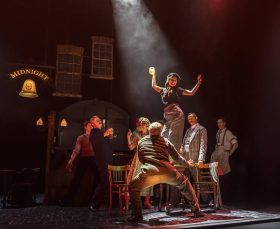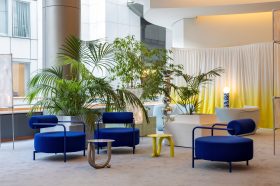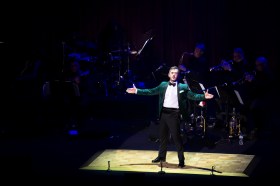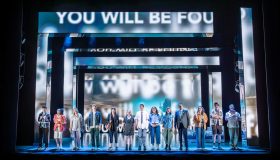Founded in 1985 by director Lisa Stolworthy, Islington-based All Change Arts uses the arts “to promote social inclusion within education, social housing, health, social care and regeneration schemes.” Summed up like that in one neat little sentence makes the work sound easy. But for All Change’s committed staff there is always something needing their attention. Now, after two decades of hard work the organisation finds itself used as a benchmark for others seeking to use cultural activities to help strengthen communiities and create greater respect and awareness of diversity in those communities.
Each year the organisation, which has a permanent staff of three plus a network of accredited professional freelance artists working across media platforms, runs several programs that develop participants skills, whilst creating “original and authentic” art. The projects are designed to reach out to the community in the broadest sense and involve young people and those identified as being at risk, mentally and physically disabled people, the elderly and those living in deprived neighbourhoods, refugee communities and asylum seekers.
All Change engages participants by ensuring its projects are exciting and relevant. For example in 2004/5 All Change, in partnership with London Metropolitan University, delivered a year-round weekly programme of arts workshops for people at risk of not participating in higher education. “98 creative learning sessions were held during the course of the year as well as three official events that “were held to share young people’s achievements with wider communities.” Almost a hundred people participated in the events.
All Change Arts makes use of the best available technology to help engage particpants, especially young people, who are keen to be involved with projects that using cutting edge gadgets to which they might otherwise have little or no access. In 2004 All Change purchased “7 Apple iBooks plus a digital camera, zip drives, printer, scanner and a selection of software including Adobe Photoshop. “
This equipment enabled All Change to run projects on digital photography/imagery, film making, scriptwriting, and music projects where participants can produce their own CDs and design the covers. For an organisation seeking to fully engage particpants it comes as no surprise, for a community arts group working in an urban environment, that one of All Change’s recent hit projects involved hip hop. Run in conjunction with the Hilldrop Community Association to inspire young people about learning and education, All Change offered particpants “access to professional artists and technology in order to learn DJ-ing and MC-ing skills, and provided lessons in the nature of the music industry. The important by product of engaging young people in a way that was meaningful and rewarding to them on their own terms was that their literacy and IT skills were improved as they completed fun activities such as using computer software and hardware to write lyrics and compose music.
All Change also works with heritage media. Projects like Skin Deep run in partnership with Sadler’s Wells, and Playing God? led by freelancer Suzanne Lee reflect All Change’s commitment to using a diverse range of media platforms. The subjects covered in All Change’s projects are similarly diverse.
At All Change education and stimulation go hand in hand. One local Islington inititiative sought to increase road safety aweareness whilst Playing God? enabled participants to “explore topical and controversial themes including stem cell research and gene therapy” and was supported by scientists and medical ethicists for its focus “on developing young people’s understanding of the science and the implications for society in finding a cure for a wide range of conditions such as Deafness, Diabetes, Parkinsons and Motor Neurones Disease.”
As well as running an exciting range of projects All Change engages in dialogue with government and educational bodies on issues related to community involvement in the arts. In April All Change was invited to present at the Creative Learning Spaces conference jointly produced by London Metropolitan University (Arts Learning Partnership), the University of Greenwich School of Education and Training and representatives from arts organisations and further education colleges. The theme was “practice informing policy.”
With local government and statutory agencies under increasing pressure to show the value of arts and cultural projects in cash terms, within a Best Value framework, All Change has proved to be one of the few community-focused arts organisations able to deliver positive outcomes for both the bureaucrats and the people it set out to serve in the first place.
This is largely because of All Change’s commitment to “encourage communities to work together to achieve high levels of social interaction, in order to enable them to become part of economic regeneration schemes.” At the same time, and probably because of this commitment, All Change has been successful in securing funding from government departments, such as Environmental and Social Services, that provide statutory services, in addition to funding secured through more traditional channels like local Arts and Leisure Authorities.




